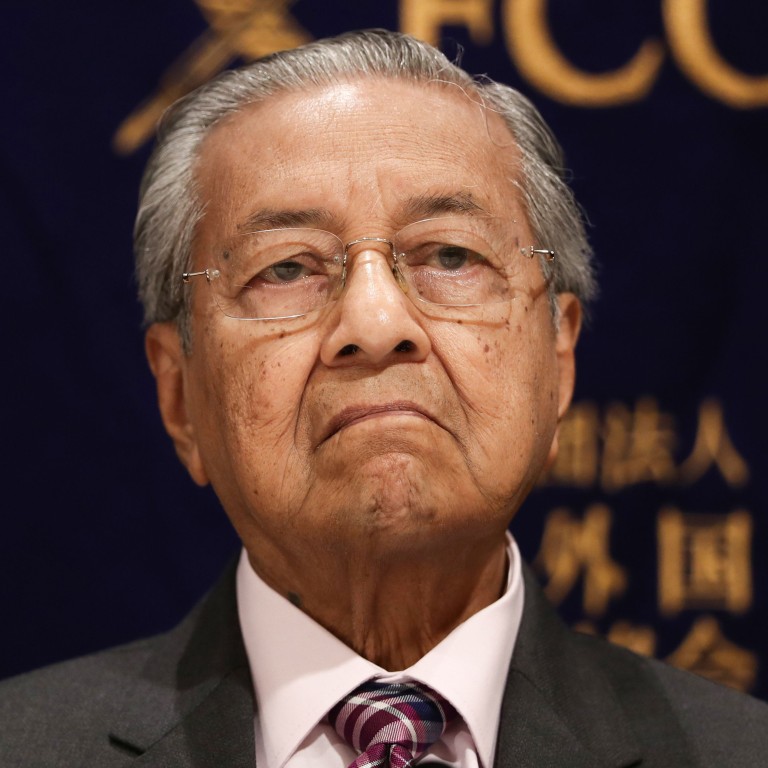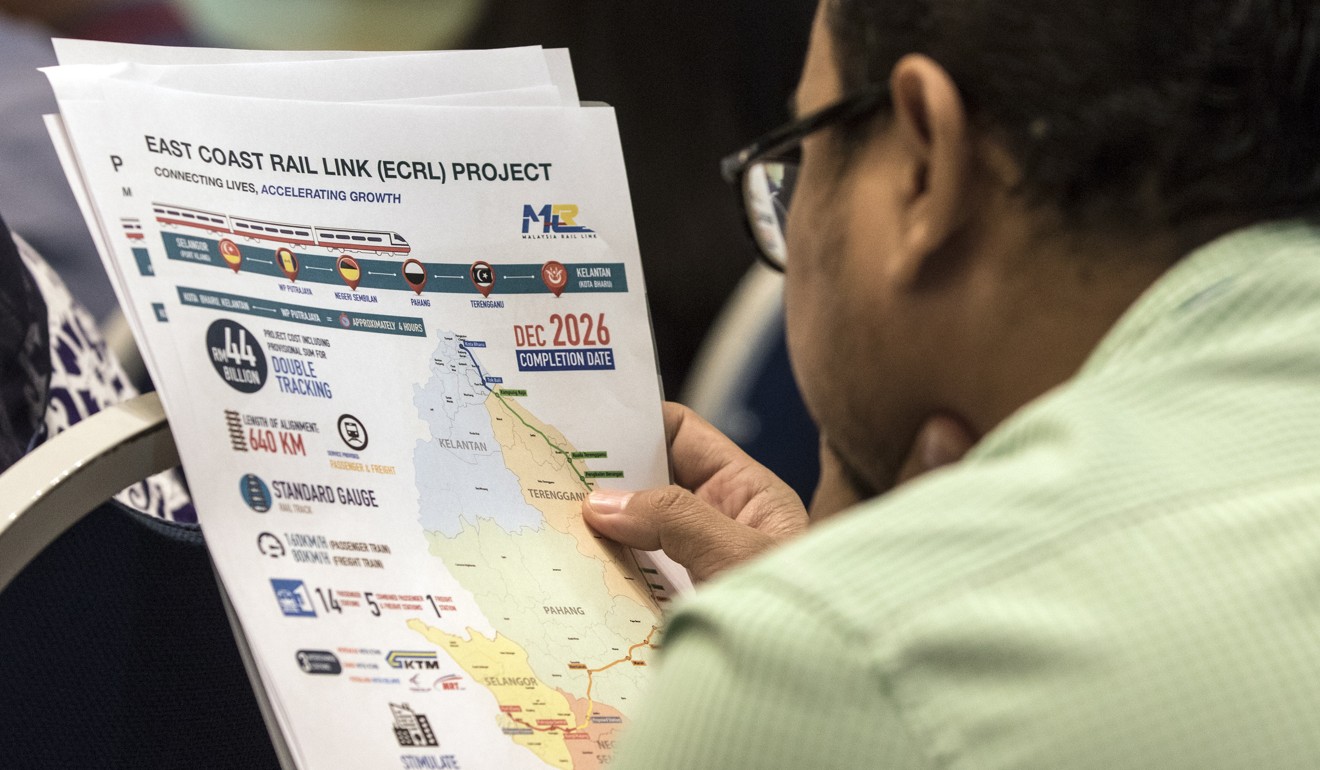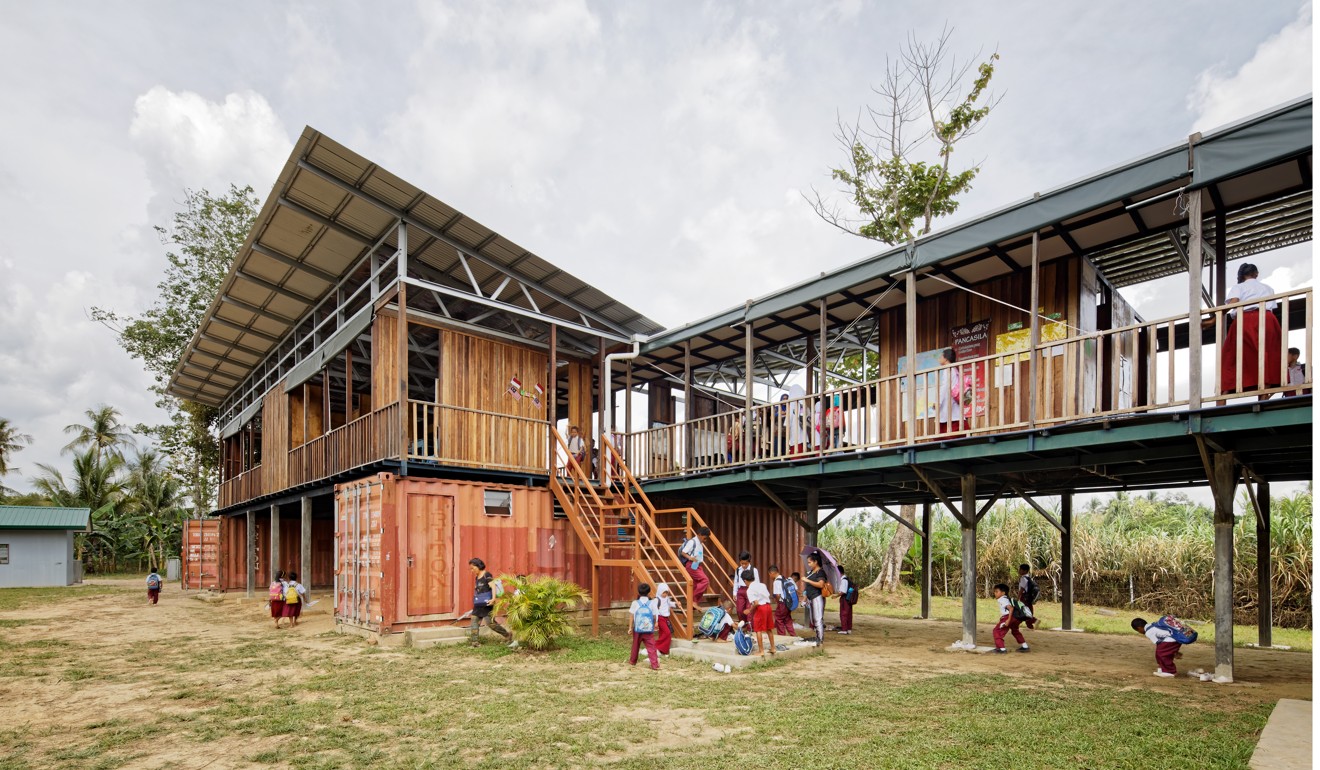
On Malaysia’s National Day, Sabah and Sarawak question place in nation
- Prime Minister Mahathir Mohamad has promised to restore autonomy to the two Bornean territories but a year on observers say there has been little movement
- Further inaction could trigger a headache for the ruling coalition, which depends on allies in these states
Singapore was later expelled from the federation, and a constitutional amendment in 1976 listed Sabah and Sarawak – collectively referred to as East Malaysia – as being states of Malaysia, alongside other states on the peninsula.
When the Pakatan Harapan government helmed by Mahathir Mohamad swept to power last May, it promised to restore autonomy to these territories, but a year on observers say there has been little movement on this front.
What’s behind revived dispute between Philippines and Malaysia over Sabah?
“Pakatan Harapan is too preoccupied with West Malaysian politics, such as the rise of a race and religion-based opposition, and trying to get the government going after winning the elections last year. Many think it is not moving fast enough, but it is not possible to solve all the issues any time soon,” said Malaysia watcher James Chin at the University of Tasmania’s Asia Institute.
Already, he said, niche secessionist movements within both states were gaining steam as the federal government continued to dither on the promised decentralisation of powers.

Further inaction could trigger a headache for the ruling coalition, which depends on Sabah and Sarawak allies and has already been accused of reneging on or failing to deliver on a slew of pre-election pledges. Sarawak state elections, a yardstick for East Malaysian sentiment, may be held as early as next year, raising questions about whether the new government can retain popularity as opposition parties openly call for independence.
The government committee set up to look into the Malaysia Agreement issue has not yet announced anything substantive, according to Arnold Puyok, an expert in Sabah and Sarawak politics at Universiti Malaysia Sarawak.
“Local leaders from East Malaysia have different ways of how the issue should be approached. Furthermore, Mahathir is not the kind of person who can be easily swayed by demands from Sabah and Sarawak,” he said, adding that the government appeared to have “different priorities”.
In Malaysia, fake news about citizenship for Chinese stokes racial tensions
“No tall buildings, no sprawling shopping centres, public transport is almost non-existent,” said Benedict Mansul, an aide to law minister Liew Vui Keong, both from Sabah.
“Why are we left behind? We don’t want more. We just want what is fair. Most of West Malaysia is already developed, so perhaps instead of thinking of 5G technology for West Malaysia, let’s have some ‘G’ for Sabah and Sarawak.”
An attempt earlier this year to amend the constitution and restore its original wording specifying Sabah and Sarawak as equal partners failed, with East Malaysian lawmakers criticising the amendment as being an empty gesture.
There are over 20 issues to be addressed concerning the Malaysia Agreement, and only a handful involving manpower, utilities regulation, health care, agricultural and forestry issues have reached consensus by the government’s task force, and details have yet to be revealed.
More thorny are issues to do with oil royalties, the return of a portion of revenue from direct taxes, and the ‘Borneoisation’ of public service in the states. These, said political scientist Awang Azman Awang Pawi, were “at a standstill”.

However, federal leaders have made their way to Sabah or Sarawak on Malaysia Day to mark the occasion and take to the stump, including prime minister Mahathir.
“Progress should be announced then, to ensure the alliance’s popularity remains stable,” Awang said.
Sarawak opposition lawmaker Nancy Shukri said her state had yet to see much change, and a host of development projects had been terminated when the government changed hands.
“People are experiencing the slow pace of development. Pakatan Harapan have not really solved anything yet. Why did they make such large promises before elections if they were not sure they could deliver? It is irresponsible.”
Malaysia rebukes Philippines for reigniting row over Sabah claim
Previously involved in negotiations on the devolution of power, Nancy said that during her time in government she and other East Malaysian lawmakers had pushed for change and many development projects had been kick-started with monetary contributions made by the federal government on an ad hoc basis in times of need. Former prime minister Najib Razak, she said, cared about development in East Malaysia and was committed to improvements. However, many structural changes were ultimately not executed due to the change in government.
“We have to do what we have to do as they are in power. The best thing is to negotiate, but I think they are lucky to have Sarawak as a cooperative state working with them. We have enriched them, and now they try to bite our fingers.”
The slow pace of reforms was also criticised by Yong Teck Lee, a former Sabah chief minister who said that failure to honour the agreement would “further alienate” East Malaysians from the government, and Malaysia as a whole.
Non-Muslim goods boycott a ‘ticking time bomb’ for Malaysia
East Malaysians have accused West Malaysians of privilege and ignorance when it comes to Sabah and Sarawak. Only in 2010 was Malaysia Day gazetted a national holiday, with Malaysia celebrating its founding on August 31, the date it gained independence from British colonisers.
Despite the new administration’s promises to improve the situation and assurances that delays are merely due to dire economic straits inherited from corruption in the previous regime, Yong believes that Pakatan Harapan is “taking the Borneo territories for granted”, and, like former ruling coalition Barisan Nasional, is “playing delaying tactics”.

“It is convenient to push this agenda into the maze of federal bureaucracy,” he said.
Sabah Heritage Party deputy president Darell Leiking, however, warned people against being “impatient”, promising that the government was “almost there – the committee should come up with something just before the end of the year”.
“The federal and state governments have been accused of being slow, but we’ve learnt a lot during the months of going through the agreement and are almost there in achieving the terms between state and federal. What is being discussed is a collective decision between all the parties involved,” said Leiking, who is also international trade and industry minister.
Mahathir tells Malay-Muslims to ‘work harder’
“We are only a year and four months old, and we have decades’ worth of wrongs to right. The fact remains that the disparity between West Malaysia and Sabah is huge, a lot of infrastructure was never done, or was done poorly. There was some development in the past, but it was a facade rather than of substance.”
Lawmakers on the ground, such as Sabah state assemblywoman Jenifer Lasimbang, have admitted to having “a better relationship” with the current federal powers, but underlined the need for more communication between partners.
“This is the only way for Malaysia to achieve this tripartite equal standing. I’d like to invite all federal ministers to come to Sabah, not just for a couple hours or a day, but to actually stay with the people for at least a week, see the lives and experiences here. It’s not enough just to come down for a day, visit a village or two, and make announcements.”
And despite monetary woes, hopefully changes will come soon and temper rising sentiment on the ground, said Jonathan Yasin, the parliamentary representative for Sabah’s Ranau constituency.
“Some people now are quite fed up and have made all sorts of moves,” said Jonathan, referring to the Sabah Sarawak Leave Malaysia (SSKM) separatist movement that has pushed for secession.
“But the finance minister explained the economic concerns to us, and said the economy should improve. We just have to wait a few more years.”

